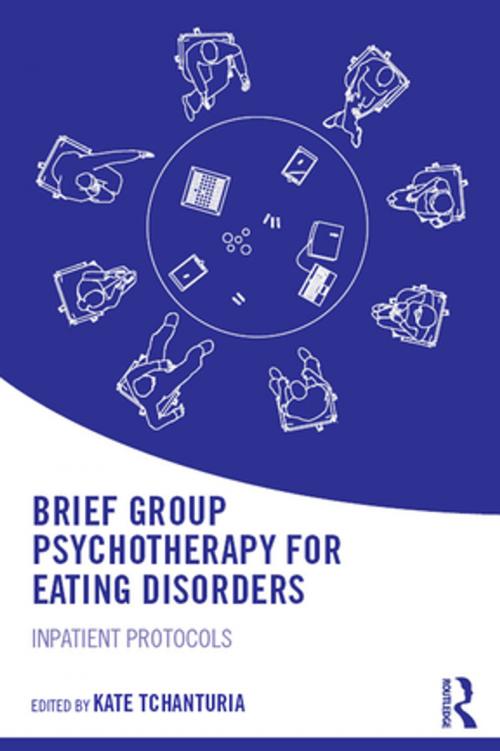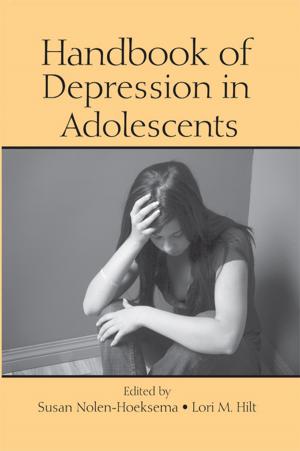Brief Group Psychotherapy for Eating Disorders
Inpatient protocols
Nonfiction, Health & Well Being, Psychology, Eating Disorders, Psychotherapy, Mental Health| Author: | ISBN: | 9781317518730 | |
| Publisher: | Taylor and Francis | Publication: | June 26, 2015 |
| Imprint: | Routledge | Language: | English |
| Author: | |
| ISBN: | 9781317518730 |
| Publisher: | Taylor and Francis |
| Publication: | June 26, 2015 |
| Imprint: | Routledge |
| Language: | English |
In the treatment of Anorexia Nervosa, delivering psychological interventions in a group format can bring unique benefits in addition to those associated with working with patients individually. These include: sharing experiences and learning from others in a safe and therapeutic environment, becoming accustomed to being with other people and practising interpersonal skills. However, these aspects of group treatment also represent a challenge for group facilitators as it is exactly these interpersonal and relational demands that patients find difficult to tolerate. Facilitators are likely to be confronted with low motivation, or complete disengagement, as a result of the discomfort evoked by spending time in psychological groups. Nonetheless, once these difficulties are successfully overcome, the group setting can be effectively utilised to address the specific aims of a given psychological intervention, as well as tapping into these wider benefits
Drawing upon research carried out by the Maudsley national inpatient eating disorders programme, Brief Group Psychotherapy for Eating Disorders brings together expert contributions in order to review the evidence base, as well as discussing how the challenges of the group setting can be overcome. This book outlines newly-developed protocols for group interventions aimed at providing brief but effective treatment for an increased numbers of patients, and addresses the need to develop and evaluate cost effective psychological interventions for patients with Anorexia Nervosa.
Brief Group Psychotherapy for Eating Disorders is designed to offer therapists, clinicians, and researchers in the field a synopsis of the available evidence along with guidance on how to put theory into practice effectively. It will also be an invaluable resource for students, trainees and teachers in the clinical, counselling, psychology, psychiatry, nursing, occupational therapy and other allied professions.
In the treatment of Anorexia Nervosa, delivering psychological interventions in a group format can bring unique benefits in addition to those associated with working with patients individually. These include: sharing experiences and learning from others in a safe and therapeutic environment, becoming accustomed to being with other people and practising interpersonal skills. However, these aspects of group treatment also represent a challenge for group facilitators as it is exactly these interpersonal and relational demands that patients find difficult to tolerate. Facilitators are likely to be confronted with low motivation, or complete disengagement, as a result of the discomfort evoked by spending time in psychological groups. Nonetheless, once these difficulties are successfully overcome, the group setting can be effectively utilised to address the specific aims of a given psychological intervention, as well as tapping into these wider benefits
Drawing upon research carried out by the Maudsley national inpatient eating disorders programme, Brief Group Psychotherapy for Eating Disorders brings together expert contributions in order to review the evidence base, as well as discussing how the challenges of the group setting can be overcome. This book outlines newly-developed protocols for group interventions aimed at providing brief but effective treatment for an increased numbers of patients, and addresses the need to develop and evaluate cost effective psychological interventions for patients with Anorexia Nervosa.
Brief Group Psychotherapy for Eating Disorders is designed to offer therapists, clinicians, and researchers in the field a synopsis of the available evidence along with guidance on how to put theory into practice effectively. It will also be an invaluable resource for students, trainees and teachers in the clinical, counselling, psychology, psychiatry, nursing, occupational therapy and other allied professions.















